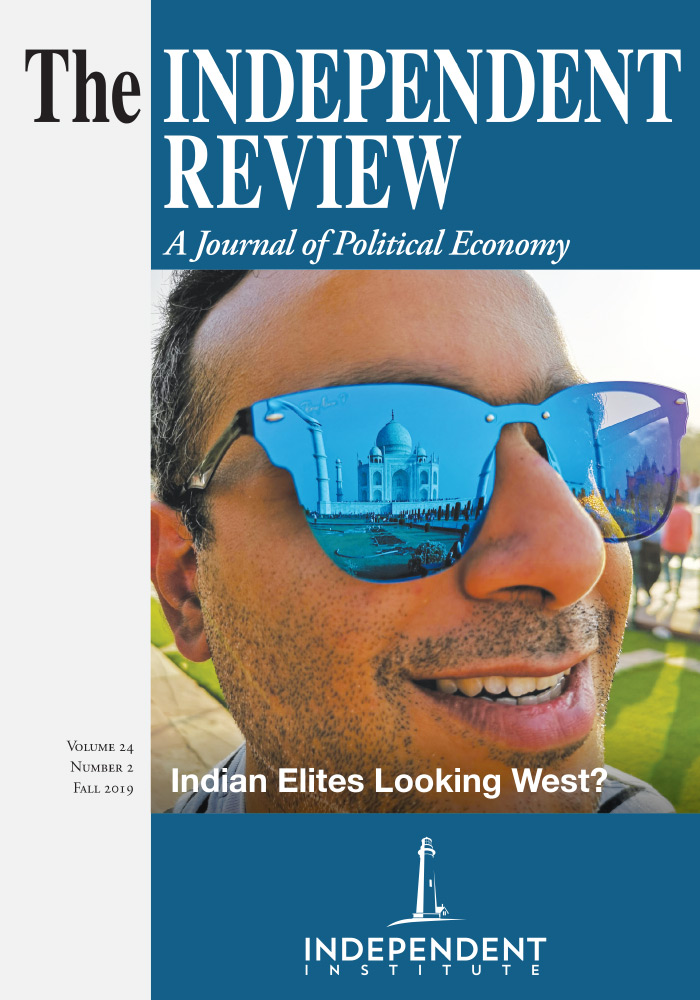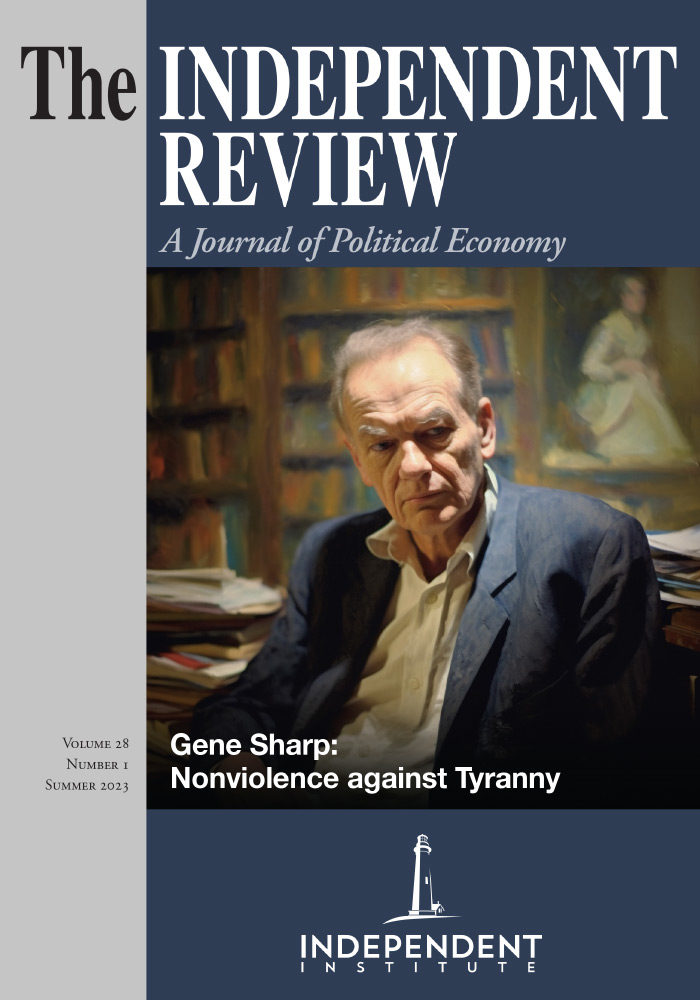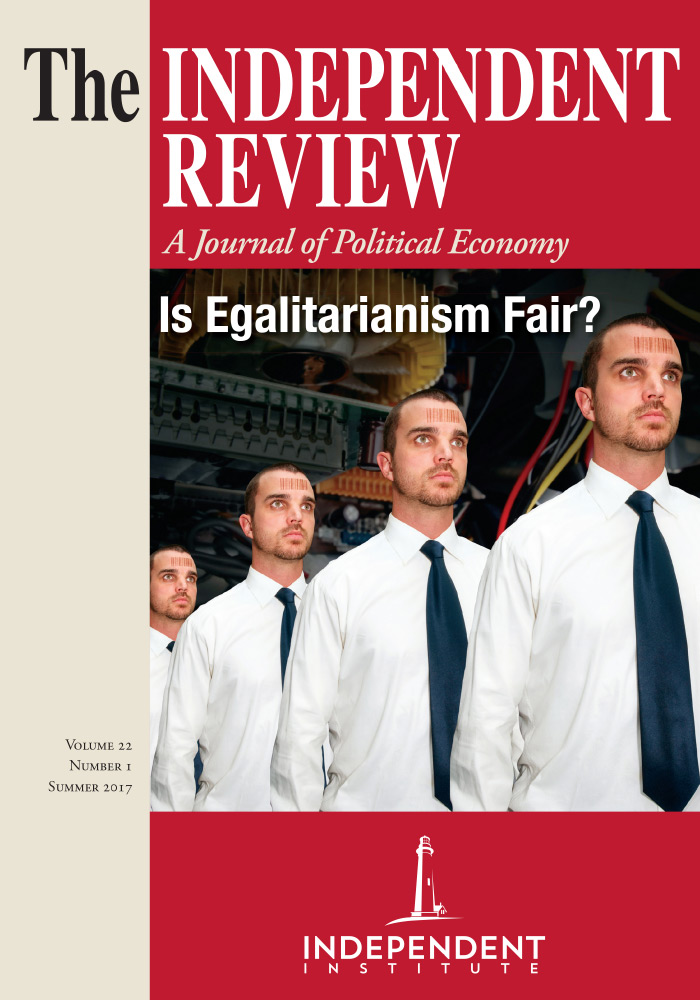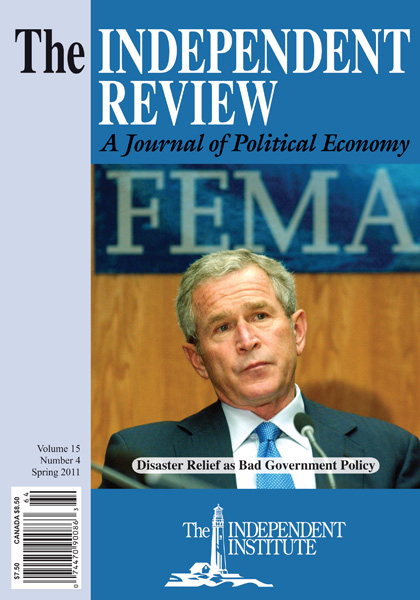Almost every nation in the world has adopted a system of participatory fascism, whereby nominally representative governments can abridge and restrict someone’s nominally recognized private-property rights. Participatory fascism may enjoy the appearance of popular legitimacy, but its formal procedures for relief from government abuses are too slow, cumbersome, costly, and ineffective to do anything reliably except to give those who lack much political clout the short end of the stick.
Article
Nearly every country in the world currently has an economic system I have long called “participatory fascism” (Higgs 1987, 240–42, 256–57, and 2018). This is a system in which nominal private-property rights exist in most resources, but these rights are subject to pervasive state abridgment and restriction. Private markets operate, but only within the extensive constraints imposed by the government. Many producers—now often referred to as “cronies”—enjoy special privileges or protections created by government restraints and penalties imposed on competing producers. Such pervasive government interference also exists in markets for labor, natural resources, intellectual capital, and other inputs in the productive process.
Such pervasive interference creates both winners and losers, and if the losers are aware of how the government’s actions are bringing about their losses, they are unhappy about the situation. They resist in all sorts of ways, from simply not complying to lobbying for changes in the laws and regulations to appealing for relief or compensation in review boards and the courts. Of course, much of the action in the electoral system pertains to candidates’ promises to change laws and regulations so that losers can reduce their losses or currently excluded parties can become privileged beneficiaries of the system.
One of the chief reasons why almost every regime in the world has converged to a system of participatory fascism is that this system creates or retains a great variety of institutionalized opportunities for the state’s victims—who compose the great majority of the people—to challenge the state’s exactions and to “make their voices heard,” thereby gaining the impression that the rulers are not simply oppressing and exploiting them unilaterally but involving them in a meaningful way in the making and enforcement of rules imposed on everyone.
These opportunities help to allay public resentment and anger, assuring people that they have had “their day in court,” and they thereby serve to prop up the regime and its ongoing exploitation. These official avenues of protest and resistance are, however, rarely of much real avail and in most cases do nothing whatsoever to relieve the victims’ plight. The oppressed citizens and other residents are protesting the actions of legislatures, government executives, bureaucracies, and courts before administrative bodies established by the very officials who are engaged in the oppression and plunder. The opportunities for voicing feedback are, in effect, ways in which people are allowed to request formally that the slave master stop beating them or reduce the severity of the beating. Yet entrenched cronies are well placed to defend their privileges and to fend off their victims’ attempts to eliminate or constrict the government’s actions that have caused their victimization. Rarely do the petitioners win, and even when they do, the costs of making their appeals, especially through the legal system, guarantee that they will be impoverished in the process. The old adage tells us that “you can’t fight city hall,” which is a way of saying that trying to get rid of the costs, burdens, and inconveniences imposed on people by the government is usually an exercise in futility. The saying is valid for the most part. Nevertheless, the availability of institutionalized avenues of protest and appeal helps significantly to diminish the pressure that might otherwise build up to resist or overthrow the government.
For the general public, it’s heads you lose, tails you lose. Such is my conclusion after more than fifty years of studying participatory fascism. Moreover, I assure you that in making the foregoing statements, I am speaking not only from my scholarly engagement with the matter but also from my personal experience, some of which grinds on seemingly endlessly even as I tap out this cri de coeur.
References
Higgs, Robert. 2012. Crisis and Leviathan (25th Anniversary Edition): Critical Episodes in the Growth of American Government. Oakland, Calif.: Independent Institute. First published 1987 by Oxford University Press.
Higgs, Robert. 2018. On the “Participatory” Part of “Participatory Fascism.” The Beacon, August 27.
| Other Independent Review articles by Robert Higgs | ||
| Winter 2018/19 | Two Worlds: Politics and Everything Else | |
| Fall 2018 | Against the Whole Concept and Construction of the Balance of International Payments | |
| Summer 2018 | Feedback and Correction in Government and the Market | |
| [View All (62)] | ||




















